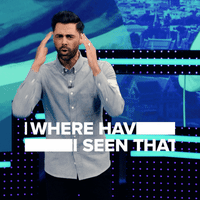RonJohn
Helluva Engineer
- Messages
- 4,555
I get what you're saying, but given that the goal was for FSU to litigate their way out of the ACC, and the ESPN "opt out" clause is one of their central arguments that the ACC decision makers entered into an agreement that wasn't in the best interest of all ACC members, the "I stayed at a Holiday Inn" lawyer in me sees no benefit to FSU to make this detail up. The unilateral opt out clause, along with other contract details, will ultimately be exposed in court litigation. In fact, the unilateral option is listed in their lawsuit so it's not just PR bravado thrown out by FSU lawyers to win the PR war. Doesn't do FSU any good to lie to the media and in court filings.
Per the filed complaint:
33. The following spring, the ACC and ESPN renegotiated the key terms of the existing
agreement producing the May 9, 2012, ACC-ESPN Amendment (the “2012 ACC-ESPN
Amendment”), which provided for a lengthy 15-year term, expiring June 30, 2027.^2
^2
It is a widely repeated misconception that the ACC’s multi-media rights agreement expires in 2036. As explained
below, in truth, the multi-media rights agreement expires in 2027 unless ESPN chooses to exercise its unilateral option
through 2036, a decision ESPN has no duty to make until February 2025, thanks to other additional conference
mismanagement detailed below.
I don't think the courts will look kindly upon FSU for making up a rather important argument in their case against the ACC.
FSU also called the GOR "draconian" in their complaint. The FSU BOT called the GOR the best thing for the ACC and FSU when the GOR was first signed. The FSU BOT praised the fact that it would make it financially difficult for ANY school to leave the conference, when they signed it. They are now calling that same document "draconian" in a legal filing. That FSU filing that you linked to goes into great detail on how other conferences (Big10 and SEC) will make more money than the ACC and concludes that the fact that someone else will make more money is necessarily a lack of fiduciary responsibility.
I don't think that the supposed nine-year-option is even an important legal argument in their case. IF such an option exists, AND ESPN drops the ACC, then there might be a legal argument that the GOR is no longer valid, but that would not be a legal argument until that actually happened. They don't make the legal argument that the GOR is invalid because ESPN dropped the ACC. They try to insinuate an argument that the GOR might not be valid in a few years IF there is no longer an ACC/ESPN contract. What does that have to do with the current time? Can your bank forclose on your house because you might miss payments in the future?
Overall, in my non-lawyer opinion, the FSU lawsuit doesn't have much if any actual merit. They are asking for a legal contract to be negated, but don't explain any legal reasons why it should be. They include a lot of non-legalese arguments about how bad the ACC is, and how much better FSU is than anybody else in the ACC. They try to throw a lot of shade towards the ACC, but don't produce legal arguments. The fact that the lawsuit depends on emotional material than laws and facts pertaining to laws leads me to be skeptical of "facts" that are in the document. I won't say it isn't true, because I don't have any actual information. I only say that I don't believe it simply based on it being in the FSU filing.
There are a lot of ways to get such information into a lawsuit, even if it isn't true, or at least isn't accurate. Don't let the lawyers talk to people who actually know the details. "Spill" incorrect information to the people who actually will talk to the lawyers. Don't let the people with actual information be involved in the review of the documents. The people who provide information are doing their best to be accurate. The lawyers are submitting filings based on information they received from their client. If you are concerned that incorrect information might come back to bite you from a judge being upset about it, just ensure that the people with actual information are otherwise occupied when the lawyers are interviewing people. You can claim that the people with actual knowledge were at a conference out of the country and unavailable when the lawsuit was drafted.

